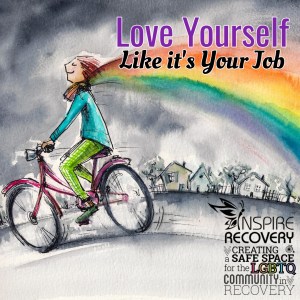LETTING GO OF CODEPENDENCY IN RECOVERY
Taking care of yourself by learning how to enjoy yourself with no one else around! Read on to learn more about letting go of codependency in recovery.
Like alcoholism and addiction, codependent relationships can be damaging to a person’s mental health. It’s not a coincidence that addicts and alcoholics will also often have issues with codependency. The behaviors of someone who is codependent are not unlike how a person addicted to drugs or drinking will act.
The psychology involved is similar as well. Dysfunctional codependent relationships often operated on the same illusions. While attending treatment for drug and alcohol addiction, many clients have learned how to let go of codependency and take care of themselves.
Addiction Can Naturally Enable Codependency
In codependent relations, a person may become totally reliant on the other person or persons in the relationship dynamic. One reason this can become a habit for an individual, validation often plays a part in the equation.
Someone who has strong codependent tendencies can base the entire sense of their identity on the relationship or another person. Outside of the structure of the relationship, they may not know who they are or how to live their lives. The roles in these types of relationships can vary.
Some may show up as caretakers. In the interest of feeling that they are needed, they may cater to every whim of their counterpart. A person might become an enabler, putting up with unacceptable behavior from others, such as addiction, lying, abuse of any nature (physical, emotional or psychological). Many will be unable to realize the amount of harm it can be doing. Codependency is something that can manifest in many different ways.
Enabling and Codependency
We grow in our recovery when we make time to enjoy our solitude.
In the context of alcoholism and addiction, enablers in relationships will allow the addicts or the alcoholic’s destructive patterns to continue. From the position of a caretaker, they may offer the others in the relationship a place to stay, money or other resources. They may believe they are helping, but in allowing the addiction to exist unchallenged, unfortunately, they hurt their counterpart in the long run.
The addict in the relationship can become inextricably dependent on those who are enabling their addiction. In this way, addiction doesn’t just afflict the addict. The disease of addiction is inclusive to the partners and the families of the addicts. Addicts will latch on to enabling and care-taking behaviors, manipulate and take advantage of these types of situations, thus including them in what can be called codependency.
Recovery: Building Self-Reliance in a Community Atmosphere
So, how do we stop being enablers? How do we stop ourselves from being dependent on others in our lives? How to let go of codependency and take care of yourself is something we must discover in recovery. Sometimes, but the addicts and enablers have to work a 12 step group like Al-Anon or ACA/ACoA—Adult Children of Alcoholics/Dysfunctional Families.
People with significant lifelong addictions may have never learned how to stand on their own feet.
There is help in addiction treatment centers and intensive outpatient programs that offer instruction in life skills in their curriculum. In the rooms of 12-Step programs, one might find a mentor who can assist them in learning the ropes to the necessities of living on their own and becoming self-reliant.
A 12-Step program that deals specifically with codependency exist. Codependents Anonymous, CoDA, for short, helps people struggling with these issues break past their limiting beliefs and boundaries, empower themselves and emerge as independent individuals who define their identities outside of the confines of a dysfunctional relationship.
Finding Friends and Fun in Recovery
Building self-reliance in a community atmosphere is a huge part of recovery. At Inspire Recovery, an addiction rehab centers specifically for LGBTQ individuals. Our clients learn invaluable life skills that they may or may not have been taught previous to entering addiction treatment.
Learning life skills—including communication skills and how to create healthy boundaries with loved ones—can be the precise education that an addict or alcohol needs to live their life clean and sober. The recovery community is a fellowship, anyone who “keeps coming back” to a 12-step meeting will be able to build sober supports that can be reliable when a person needs someone to talk to.
By creating positive, sober, peer supports we are able to grow into both self-reliance as well as how to ask for help from those who are also practicing healthy boundaries.
Codependency can be just as dangerous as addiction, especially if someone you are dependent on also struggles with a drug or alcohol problem. In recovery, we learn to take care of ourselves because in the past we may have put other’s needs before our own. With a strong recovery program, most people are able to transform codependency into healthy relationships.











